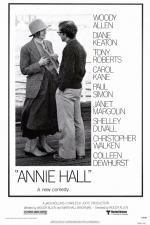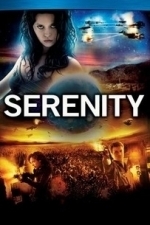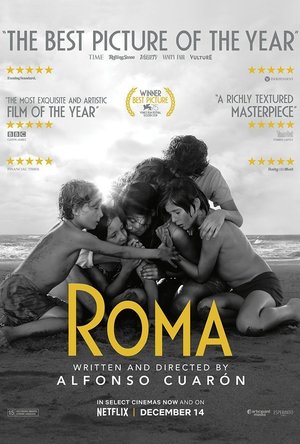
David Bowie: The Last Five Years
TV Show Watch
There was nothing predictable about David Bowie. Everything was designed to intrigue, to challenge,...
documentary music
The Quick, the Dead and the Revived: The Many Lives of the Western Film
Book
For more than a century, Western films have embodied America's most fundamental doctrine -...

20th Century Photographers: Interviews on the Craft, Purpose, and the Passion of Photography
Grace Schaub and George Schaub
Book
This book is a compilation of interviews and essays that cover a broad range of photographers and...
Mike Birbiglia recommended Annie Hall (1977) in Movies (curated)
David McK (3721 KP) rated The Rock (1996) in Movies
Jul 12, 2023
We're talking the likes of National Treasure, Con-Air, Face/Off. And this, his first entry in that mold from 1996.
Also starring Sean Connery in a Bind-in-all-but-name role, this sees Cage playing the part of an FBI chemical expert who has to accompany Connery and US Marines on a mission to infiltrate Alcatraz (Connery's role being as the only man to ever escape from said prison) after a group of disillusioned Marines - led by Ed Harris - seize control of the island and have chemical weapons pointing at San Francisco.
I think this may be the first Michael Bay film I ever saw; looking back on it now I can see that, even back then, it has all the hallmarks of one of his films!

Rewind: A Half-Century of Classics, Cult Hits, and Other Must-See Movies
Book
Some movies are iconic. Others are merely entertaining. In Rewind: A Half-Century of Classics, Cult...
Gareth von Kallenbach (980 KP) rated Serenity (2005) in Movies
Aug 14, 2019
While networks have often had a love/hate relationship with Science Fiction shows, few can debate that shows such as Battlestar Galactica, Smallville, Buffy, and The X-Files have proven to be profitable investments for the studios that created them.
Sadly for fans and viewers alike, for every hit there are at least three failures such as The Lone Gunmen, Space Rangers, and Earth 2. Then you get the shows such as Enterprise, Crusade and Firefly that get cancelled before their time, leaving legions of fans to ponder what might have been had the shows been allowed to continue their productions.
When FOX cancelled the show Firefly after a handful of episodes, fans were outraged. The show had developed a loyal following, but did not meet what the studio was after, leaving it as just another failed series.
Thanks to strong DVD sales, the shows creator Joss Whedon was given the chance to bring his series to the big screen and after months and months of delays, the film Serenity has finally been released.
I would like to say at the outset that while I was not a fan of the show, I did catch it in reruns and grew to appreciate much of the quality that was in the show. With my new found appreciation of the show and amidst the wave of growing hype around the release, I attended an early screener of the film several weeks back anxious to see what the excitement was all about.
The film revolves around the crew of a Firefly class ship named Serenity whose Captain Mal (Nathan Fillion), is a former soldier who survived the battle of Serenity Valley during a period of galactic unrest. Mal makes a living as rogue trying to stay ahead of the Alliance and various threats such as the deadly cannibalistic Reavers.
The story involves a young girl named River (Summer Glau) and her physician brother Simon (Sean Maher). The two are fleeing the Alliance where River was being honed to be a weapon of amazing abilities.
In the aftermath of a mission where the deadly Reavers arrive, Mal and the crew find themselves fleeing an Alliance assassin, who has brought the overwhelming might of the Alliance to bear in an effort to capture River.
Of course Mal with no love of the Alliance will not allow this even though many in his crew see new harm in saving their necks by turning her over. As the film unfolds it leads to the discovery of why the Alliance is so desperate to keep the knowledge River has obtained a secret and a deadly confrontation between the crew, the Reavers, and the Alliance.
As much as I tried to like this film, I was unable to. The film plods along for almost 90 minutes before getting to any sustained action, and when it finally does arrive, it is so by the book and underwhelming, I felt cheated. Two gigantic fleets converge and I think we are going to get a grand battle. Instead, the film gives us about 90 seconds of action only to take the story to a bland locale in a poorly decorated and conceived set.
After sitting through such a large setup, and enduring a cast that often is about as exciting in this film as watching paint dry, I thought something more should be done. I would have expected this from a show that was on television, but for a film version, it was lacking much of the energy that is needed to maintain a feature films.
I am not saying that the cast are bad actors, far from it, but they spend a lot of the film with a dear in the headlights look that underscores that this is first and foremost a TV. show. As such, the cast and many of the sets and effects seem underpowered in the transition to the screen.
The entire length of the film, I thought I was watching an inexpensive television series rather than a major studio release. As such, I had a hard time caring for the characters.
A few nights ago I watched another episode of the series on the Sci Fi Channel and I was amazed at how interesting the characters were, how engrossing the story was, and how much humor and action it had. While the film attempts to convey this, much of it falls flat. Serenity will make a good film series with a bit more effort, but as it stands now, the film is little more than a TV movie of the week for die hard fans only. This is sad as with a bit more polish it could have, and should have been much, much more.
Mary Ellen Mark recommended Ikiru (1952) in Movies (curated)

Intro Movie Vlog Trailer Maker
Photo & Video and Productivity
App
The simplest Intro Maker to create & add professional-quality intros to your movies PRESENT YOUR...
Justin Patchett (42 KP) rated Roma (2018) in Movies
Mar 3, 2019
Since I’m in a clear minority on this film, I feel obligated to preemptively address some common criticisms. If Roma had been produced in English, presented in color and with any score, it couldn’t fix the fact that I simply dislike Roma’s genre. Sure, I’ve liked slice-of-life drama films, and modern period pieces do fine by me. Pretentious Oscar-farming arthouse flicks like this, though, never win my praise.
Roma follows Cleo, a housemaid in Mexico City. Cleo has gotten pregnant and the presumed father, Fermín, leaves her to buy cigarettes before the baby’s even born. Her employer, Sofía, is dealing with a cheating spouse. What follows is two hours of both of these women marginally helping each other with their respective situations. As slice-of-life films do.
Since it's a slice-of-life film, much of the story just basically happens. You'll remember a scene here or there that happened, even if it was ultimately insignificant. In one scene for instance, Cleo goes to confront the baby daddy, who’s at a huge martial arts class. She spectates and proves to be the only one able to perform a certain yoga pose. Which is important because it helped add another few minutes to the film.
Cleo goes into labor not long after this confrontation, but her daughter ends up being stillborn. This all happens in the midst of the Corpus Christi Massacre. What the heck was the Corpus Christi Massacre, you may ask? According to this film, it was a brutal inconvenience on Cleo’s way to the hospital after her water breaks. This actual historical event simply happens and is never addressed for one second more. You know, just like in Titanic where the shipwreck just makes things inconvenient for Rose and Jack.
The last major scene in the film comes when Sofía invites Cleo to come with her family on a trip to the beach, not as staff but to help Cleo cope with the tragedy of losing her child. While they’re there, Sofía leaves the children in Cleo’s care for two freaking minutes, and two of the kids nearly drown. Cleo, though, can’t swim, and so she stands out in the water as the kids rescue each other. And that's about as close as Roma gets to a cohesive plot. Cleo only came with them to help her grieving, which meant she could be there to be powerless while her employer’s kids save each other’s lives. Bad things happen to us, the film teaches, so that good things can coincidentally happen in our proximity.
In fact, coincidence seems to be the running theme, here. Remember the Corpus Christi Massacre? No? What if I call it “the scene where Cleo goes into labor”? Maybe that helps? Fermín briefly held Cleo at gunpoint in the middle of it. Again, mere coincidence. Just like it’s a mere coincidence that she goes into labor the same day as a massacre that killed 120 people. As coincidences do.
Roma isn’t an aggressively bad film. There are a rare few moments within Roma’s 2-hour runtime where you think, “I can see that clip showing up during a Facebook video binge,” but again: These are moments more rare than our current president ordering a rare steak. That rarity has everything to do with the fact that the movie has so few moments, at all. The rest is shots that linger too long from angles that repeat themselves all too often. It’s like Cuarón asked someone, “What does a movie like Juno need to be better?” They responded, “Nothing.” So Cuarón packed Roma with nothing.
Which brings up one of my biggest criticisms of Roma: The cinematography is bland. Cuarón shot practically the entire film on one camera, set a specific distance from the subject, and kept takes running as longer than they should have, padding out a short-film’s worth of content to feature length. It’s bland cinematography that somehow earned an Oscar for Best Cinematography.
Gravity showed us what Cuarón was capable of. Beyond bringing a seemingly authentic view of space to the big screen, Gravity offered variety. Yes, the huge collision scene in Gravity takes on the feel of a one-take scene, but even then, the camera moves with the action. And if your attention moves away from the foreground the shot, you’re able to see other important things going on. With Roma, though, your foreground is your film. Period. And to be sure, you'll be kept at arm's length from that foreground at all times, both metaphorically and cinematically.
There's a number of reasons why Roma wasn't the Best Picture, this year. Gravity proved that Roma is not Cuarón’s best film. Bo Burnham–yes, that Bo Burnham–wrote and directed a better slice-of-life film with Eighth Grade. And Roma might not even be the past year’s best black-and-white film; I dare suggest that Cold War may have been better.
To give it the credit it’s due, Roma’s cast rightly earned nominations for their performances. Yalitza Aparicio and Marina de Tavira earned Best Actress nominations for their roles, and for their part, their performances were authentic as can be. It's the least the Academy could do for having them endure Cuarón's lengthy takes.
But now that I've given it credit, I demand my time back for the scene of Fermín going Star Wars Kid meets Full Monty.
